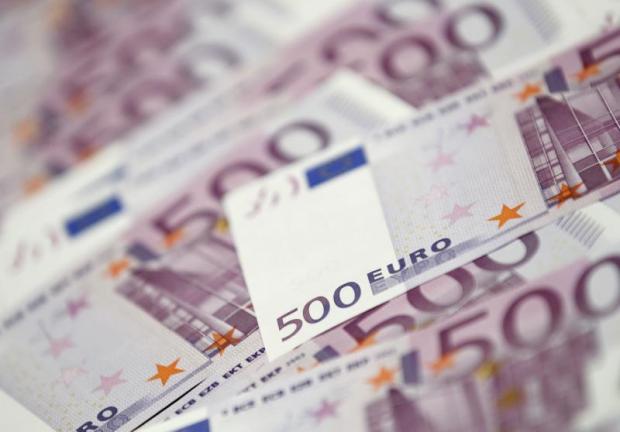
BRUSSELS: The European Union should consider banning 500-euro banknotes because their high value makes them too useful a vehicle of corruption and other illegal activity, the head of the EU anti-fraud body told Reuters in an interview.
More than five times more valuable than the largest US equivalent in circulation, the $100 bill, the 500-euro bill is worth $540 and offers a rare concentration of purchasing power and global convertibility in a single, small piece of paper.
"I wonder if there is still a need for high denomination bills, such as the 500-euro bill, especially bearing in mind that these can make the life of fraudsters much easier," the head of the European Anti-Fraud Office (OLAF), Giovanni Kessler said in an interview in his office in Brussels.
The European Central Bank in Frankfurt, which issues the euro, declined to comment on Kessler's call, made on day when EU interior ministers and the Europol police agency formally launched a new counter-terrorism unit, one of whose prime functions will be clamping down on money flows for militants.
Kessler is charged with investigating fraudulent use of EU funds and wrongdoing within EU institutions with a team of about 300 detectives. In 2014, OLAF unveiled frauds for about €900 million.
Formerly a prosecutor against the Italian mafia, Kessler argued that smaller denominations and a more widespread use of electronic money would help investigators.
"Traceability is paramount in fighting corruption and fraud," he said.
At the end of last year, about 3% of notes in circulation were 500-euro bills, representing 28% of the total value, ECB data show.
Like the $100 bill, many of the big euro notes are believed to be held outside their home economy in regions where many prefer cash to bank accounts.
When euro notes and coins began to circulate in 2002, Germany was among the main supporters of having a 500-euro banknote to match the value of its 1,000-mark note, and cater to Germans' traditional preference for cash over electronic money.
Some other states, notably The Netherlands, had also issued such large denominations while France, where the biggest franc note was worth just €76, argued against the 500-euro bill.
Its supporters argue that reducing the highest denomination would not significantly discourage illicit cash transactions.
However, Britain, outside the euro zone, has prohibited exchange offices from selling 500-euro notes since 2010 over crime fears. The biggest sterling note is £50, or €66.
Should the 500-euro note ever be abandoned, however, those seeking an alternative may not need to look far -- the Swiss offer a 1,000-franc bill worth €910, or $986.
The 59-year-old Kessler is also calling for more cross-border powers for detectives to cope with the increasing amount of transnational financial crimes.
"We have a common market with no frontiers for goods, capital and people. Let's have it for criminal investigations.
"Just as an example, a Hungarian official may be bribed by a Spanish company and receive the kickback in an account in Germany, making it very difficult to spot a crime within national borders," he said.